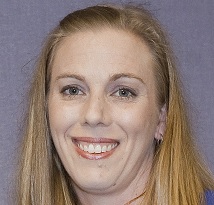
Project Summary:
Stroke is the second leading cause of death in the world and a major source of disability affecting quality of life. In Australia, approximately 50,000 people per annum experience a stroke, causing death in ~25% of cases. Over the last 30 years, numerous therapeutic strategies to protect the brain following ischemic stroke have failed. Therefore, there continues to be an unmet need for the development of treatments that can be delivered after a person experiences a stroke, to promote brain cell survival and repair.
Oligodendrocytes are a type of brain cell that is particularly sensitive to death following a stroke. They are the insulating cells of the brain, that wrap up the nerve cells like electrical tape thereby increasing the speed and reliability of information transfer between brain regions. Oligodendrocytes also provide critical metabolic support to sustain nerve cells. Following stroke, these information transfer areas (white matter tracts) can become damaged and dysfunctional, contributing to the disability incurred by stroke patients. It is oligodendrocytes within these areas that die following a stroke, but the way in which they die is unclear. By modelling the ischemic (oxygen and nutrient deplete) conditions characteristic of a stroke in live brain slices, this project aims to understand the mode of oligodendrocyte death induced by a stroke, particularly by investigating a newly described mode of cell death triggered by inappropriate iron breakdown known as ferroptosis, and determine the capacity for already developed therapeutics to rescue these cells. By saving oligodendrocytes from death after stroke, we aim to reduce the lesion size, but also keep these critical cells in place to support nerve cell survival and function.



 The Brain Foundation is the largest, independent funder of brain and spinal injury research in Australia. We believe research is the pathway to recovery.
The Brain Foundation is the largest, independent funder of brain and spinal injury research in Australia. We believe research is the pathway to recovery.